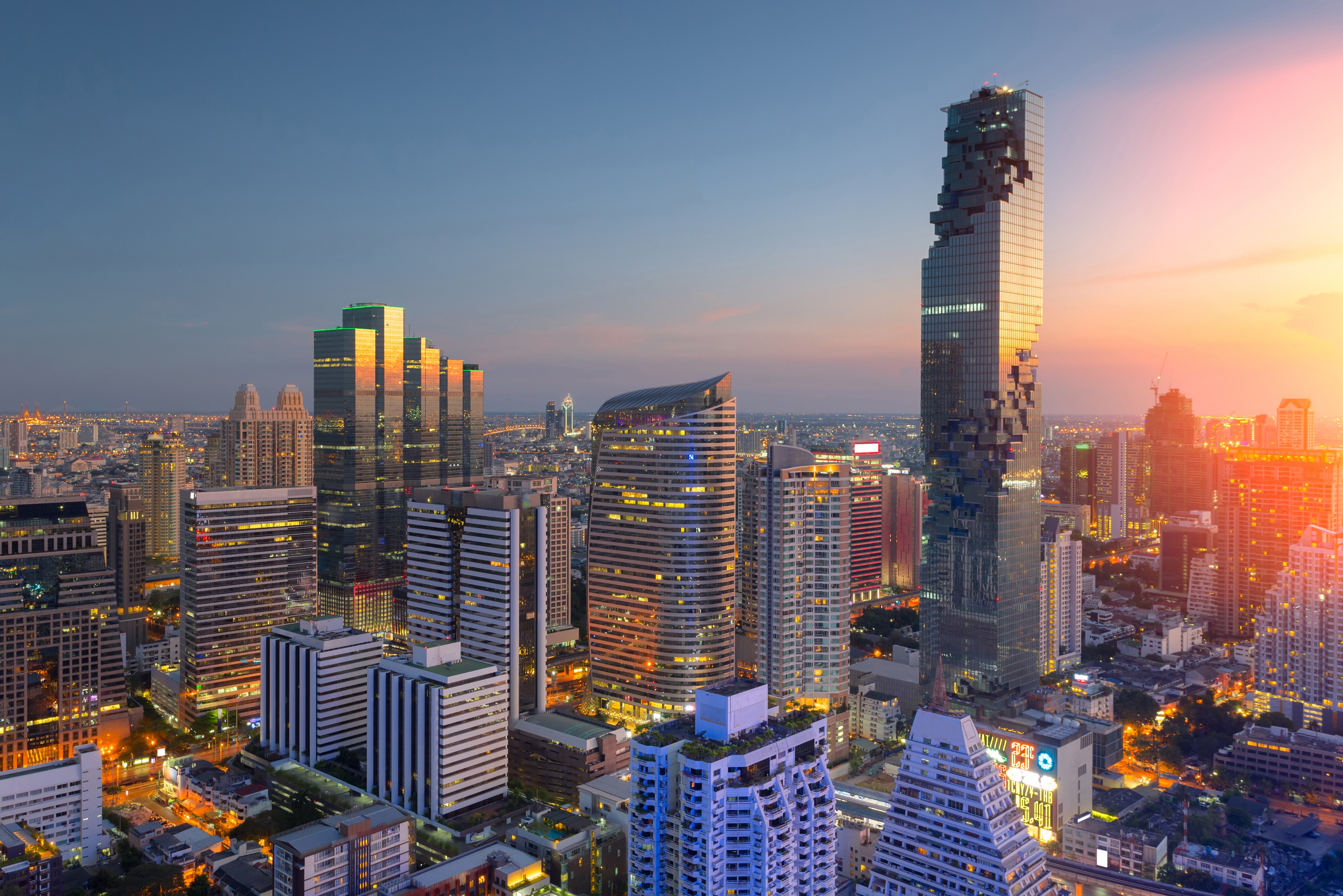Thailand has been emerging as a crypto hub in recent years. Here are some reasons why KXCO has chosen Thailand for it’s global Headquarters.
- Regulatory Framework: The Thai government has introduced a regulatory framework for cryptocurrencies and digital assets, which has given more legitimacy to the crypto industry in Thailand. In 2018, the Thai Securities and Exchange Commission (SEC) issued regulations on initial coin offerings (ICOs), and in 2019, the government passed the Digital Asset Business Emergency Decree to regulate digital asset exchanges, brokers, and dealers.
- Adoption of Cryptocurrencies: Thailand has seen a growing adoption of cryptocurrencies among businesses and consumers. Many businesses, particularly in the tourism and hospitality industries, have started accepting cryptocurrencies as payment. Additionally, several cryptocurrency exchanges have established operations in Thailand, and more people are using cryptocurrencies for remittances and peer-to-peer transactions.
- Supportive Infrastructure: Thailand has a supportive infrastructure for the crypto industry, with a growing number of startups, accelerators, and incubators focused on blockchain and cryptocurrency technology. The country also has a well-developed fintech ecosystem and a strong startup community, which has attracted investment and talent to the industry.
- Government Support: The Thai government has been supportive of the crypto industry, recognizing the potential for innovation and economic growth. The government has set up a blockchain-based platform for tracking and tracing agricultural products, and has also launched a national digital ID system using blockchain technology.
- Crypto-friendly Culture: Thailand has a crypto-friendly culture, with a growing community of cryptocurrency enthusiasts and investors. The country has hosted several blockchain and crypto conferences and events, and has a thriving social media presence for the crypto community.
Thailand has been emerging as a crypto hub in recent years, thanks to its regulatory framework, adoption of cryptocurrencies, supportive infrastructure, government support, and crypto-friendly culture. As the crypto industry continues to grow and mature, Thailand is well-positioned to become a major player in the global crypto economy.

Here are some economic facts about Thailand:
- Thailand has a population of approximately 69 million people.
- The country’s GDP was approximately $544 billion in 2020.
- Thailand is the second-largest economy in Southeast Asia, after Indonesia.
- The country’s major industries include electronics, automobiles, textiles, and agriculture.
- The service sector is the largest sector in Thailand, accounting for approximately 54% of the country’s GDP.
- The manufacturing sector is the second-largest sector in Thailand, accounting for approximately 34% of the country’s GDP.
- Agriculture accounts for approximately 10% of the country’s GDP.
- Thailand is a member of the Association of Southeast Asian Nations (ASEAN) and the World Trade Organization (WTO).
- Thailand’s main exports include electronics, automobiles, rubber, and food products.
- The country’s main trading partners include China, Japan, the United States, and the European Union.
- Tourism is a significant contributor to the Thai economy, accounting for approximately 20% of the country’s GDP.
- Bangkok is the capital city and the economic hub of Thailand.
- The Thai baht is the currency of Thailand.
- Thailand has a relatively high level of income inequality, with a Gini coefficient of approximately 0.5.
- The country’s unemployment rate was approximately 1.9% in 2020.
- Thailand has a well-developed transportation infrastructure, including airports, seaports, and highways.
- The country has a skilled and educated workforce, with a literacy rate of approximately 96%.
- Thailand has a relatively low inflation rate, with an average annual inflation rate of approximately 1.5% over the past decade.
- The Thai government has implemented policies to promote economic growth and reduce poverty, including social welfare programs and initiatives to promote small and medium-sized enterprises.
- Thailand has faced several economic challenges in recent years, including political instability, natural disasters, and the COVID-19 pandemic.

The Thai economy is the second largest in Southeast Asia, after Indonesia, and is one of the fastest-growing in the region. It is a diverse economy with a mix of agriculture, manufacturing, and services sectors, and has undergone significant changes over the past few decades, transforming from a primarily agricultural-based economy to one that is increasingly reliant on industry and services.
Historically, Thailand’s economy was based on agriculture, with rice as the main crop. However, in recent years, the government has implemented policies to diversify the economy and promote the growth of the manufacturing and services sectors. This has led to a significant increase in the contribution of these sectors to the country’s GDP.
The manufacturing sector is one of the most important sectors in the Thai economy. The country has a well-developed manufacturing base, with a focus on electronics, automobiles, and textiles. Thailand is home to several multinational corporations, including Toyota, Ford, and Honda, which have established manufacturing plants in the country. The manufacturing sector is also supported by a strong supply chain and logistics infrastructure, which makes it an attractive location for foreign investors.
The services sector is also a key contributor to the Thai economy. The country has a well-developed tourism industry, which is a major source of foreign exchange earnings. Thailand is known for its beautiful beaches, temples, and cuisine, and attracts millions of tourists every year. The country is also a popular destination for medical tourism, with world-class hospitals and medical facilities attracting patients from around the world.

Thailand’s economy has faced several challenges in recent years, including political instability, natural disasters, and a global economic downturn. In 2014, a military coup led to a period of political instability, which affected the economy. However, the country has since stabilized, and the government has implemented policies to promote economic growth.
The Thai economy is environmental degradation. Thailand is facing significant environmental problems, including air and water pollution, deforestation, and soil degradation. These issues are not only affecting the health and wellbeing of the population but are also affecting the country’s economic growth.
The government has implemented several initiatives to address these issues, including the establishment of environmental regulations and the promotion of sustainable development practices. However, progress has been slow, and there is still a long way to go before the country’s environmental problems are fully addressed.
Despite these challenges, the Thai economy has performed well in recent years. In 2019, the country’s GDP grew by 2.4%, driven by a strong performance in the manufacturing and services sectors. However, the COVID-19 pandemic has had a significant impact on the economy, with a sharp decline in tourism and a slowdown in global trade.
The Thai government has implemented several measures to mitigate the impact of the pandemic, including a stimulus package to support the economy and measures to promote domestic tourism. However, the country is still facing significant economic challenges, and the full impact of the pandemic on the economy remains to be seen.
KXCO is Chain1 is the 1st client developed under the KXCO umbrella. It is built with Java, and it offers several benefits that make it an attractive choice for organizations looking to build blockchain solutions.
While FBX is the Chain Currency for KXCO you can pay in any Fiat or Digital Asset, the system will automatically process the transaction and buy the required amount of FBX at the same time without you having to do any conversions or additional work, fast, easy and safe.
Buy FBX









